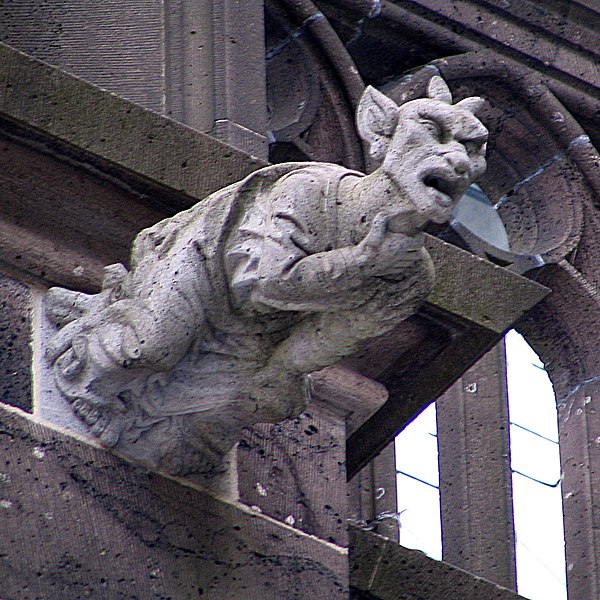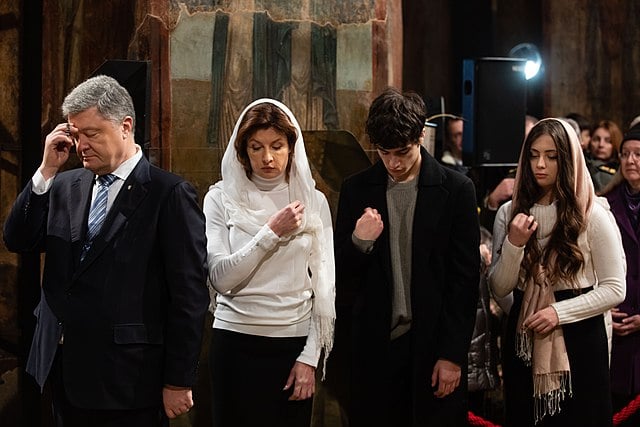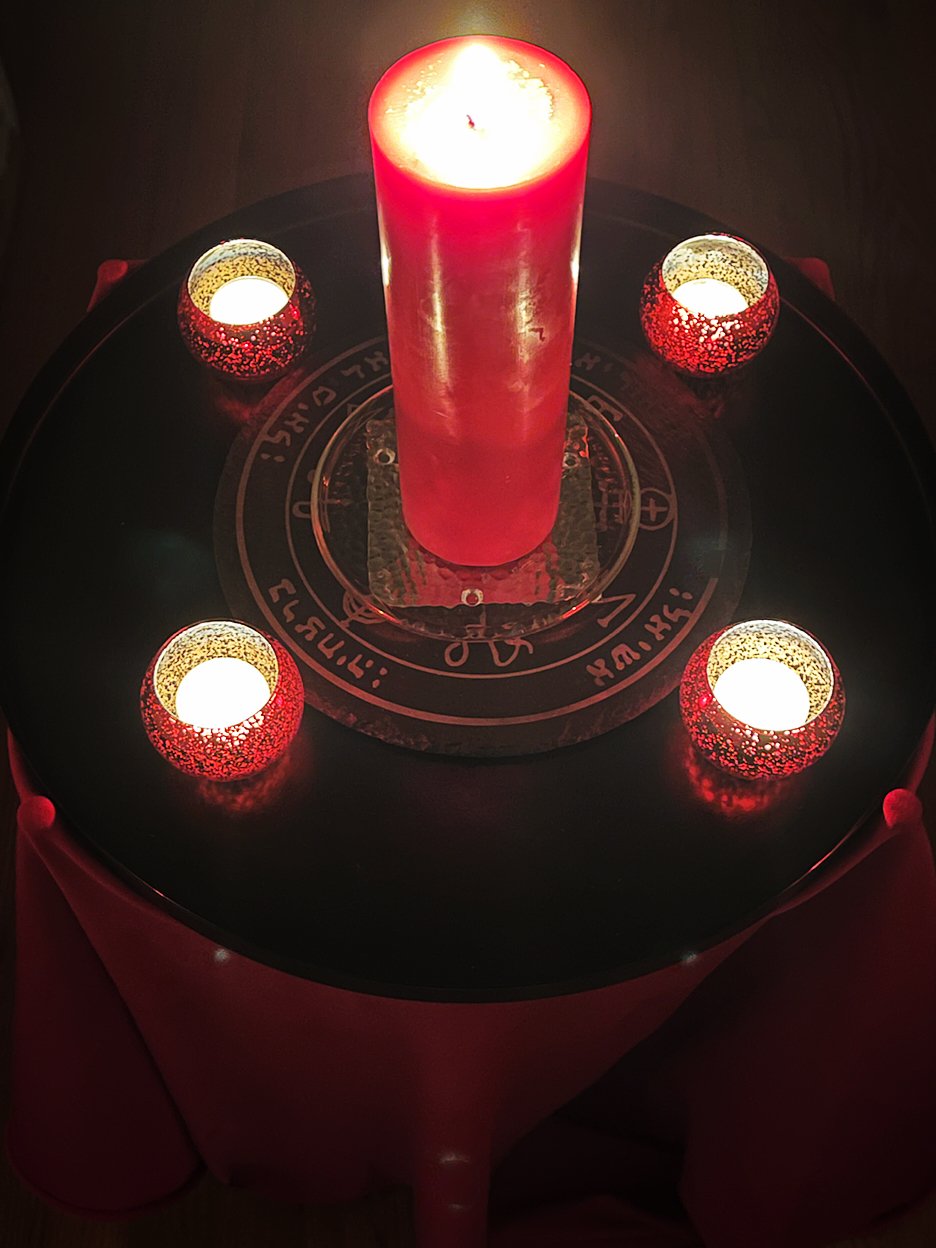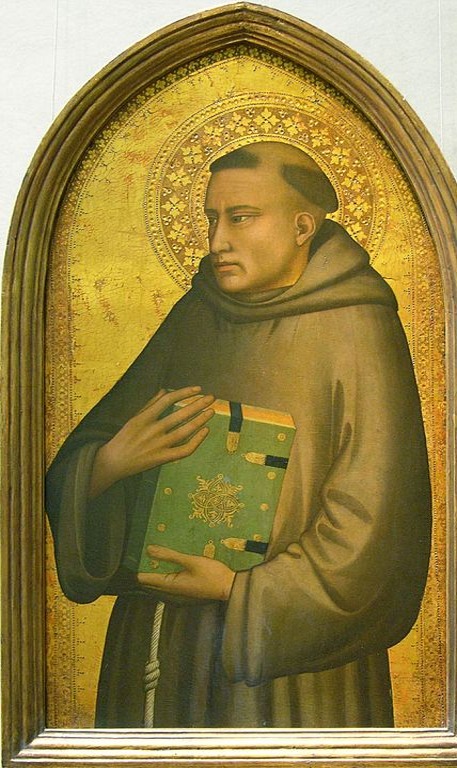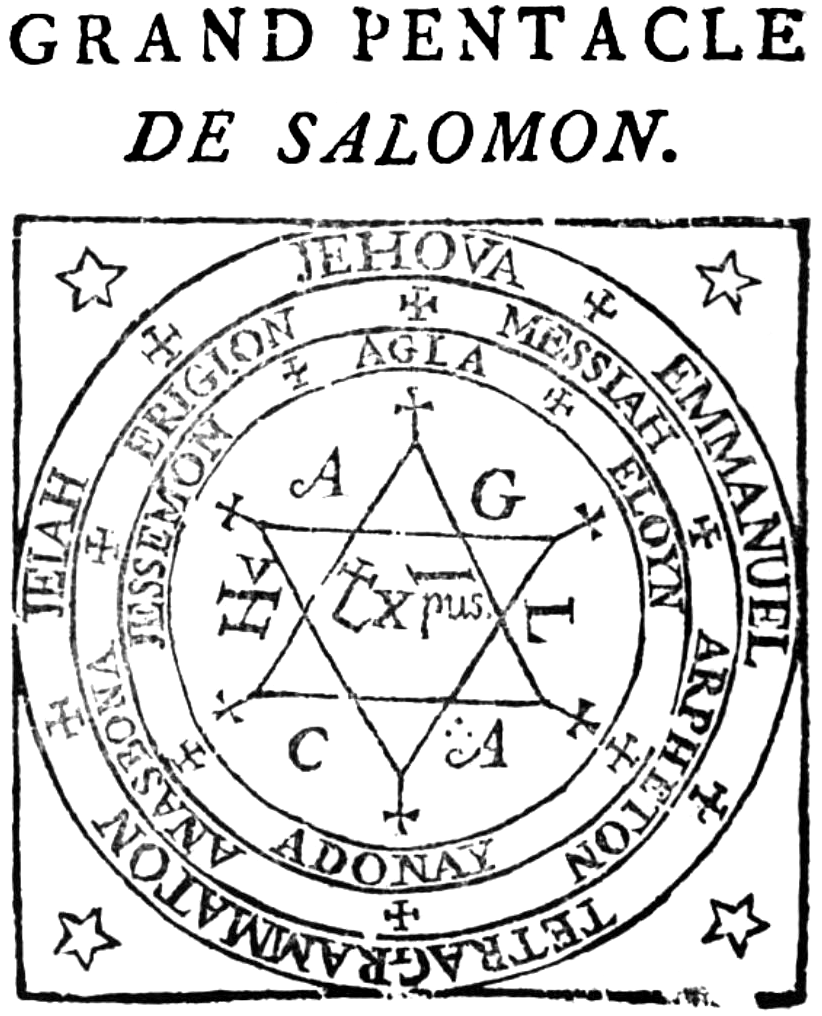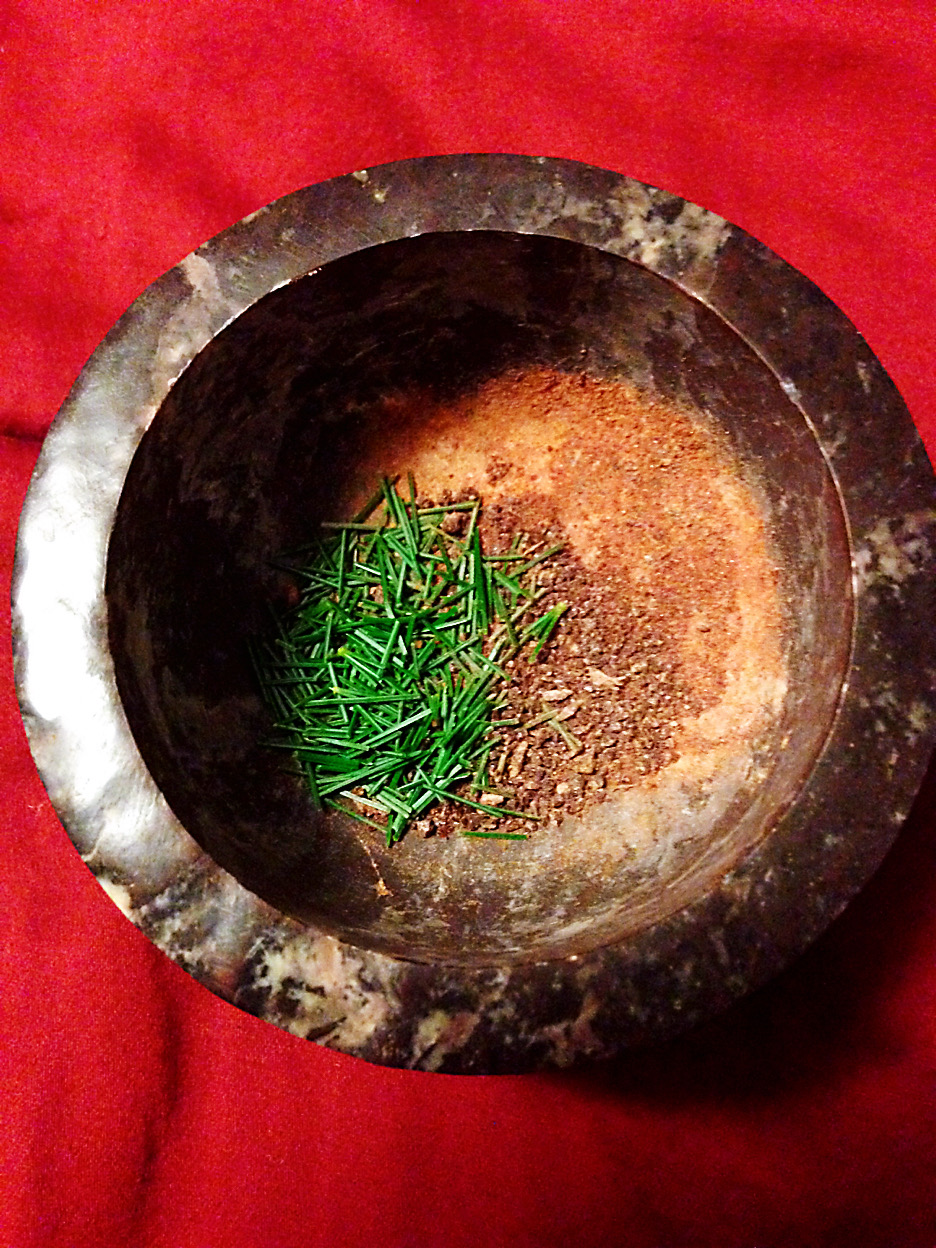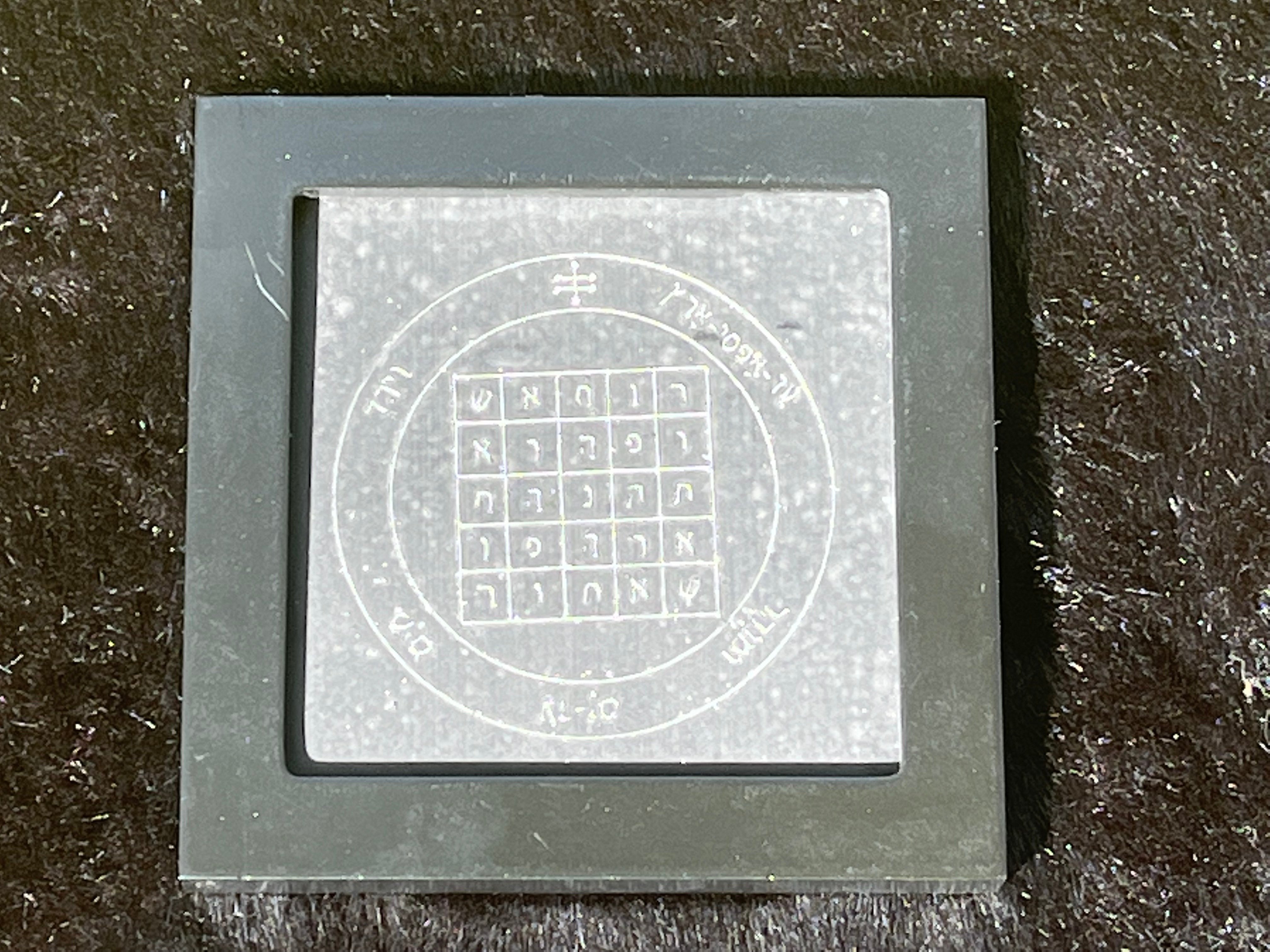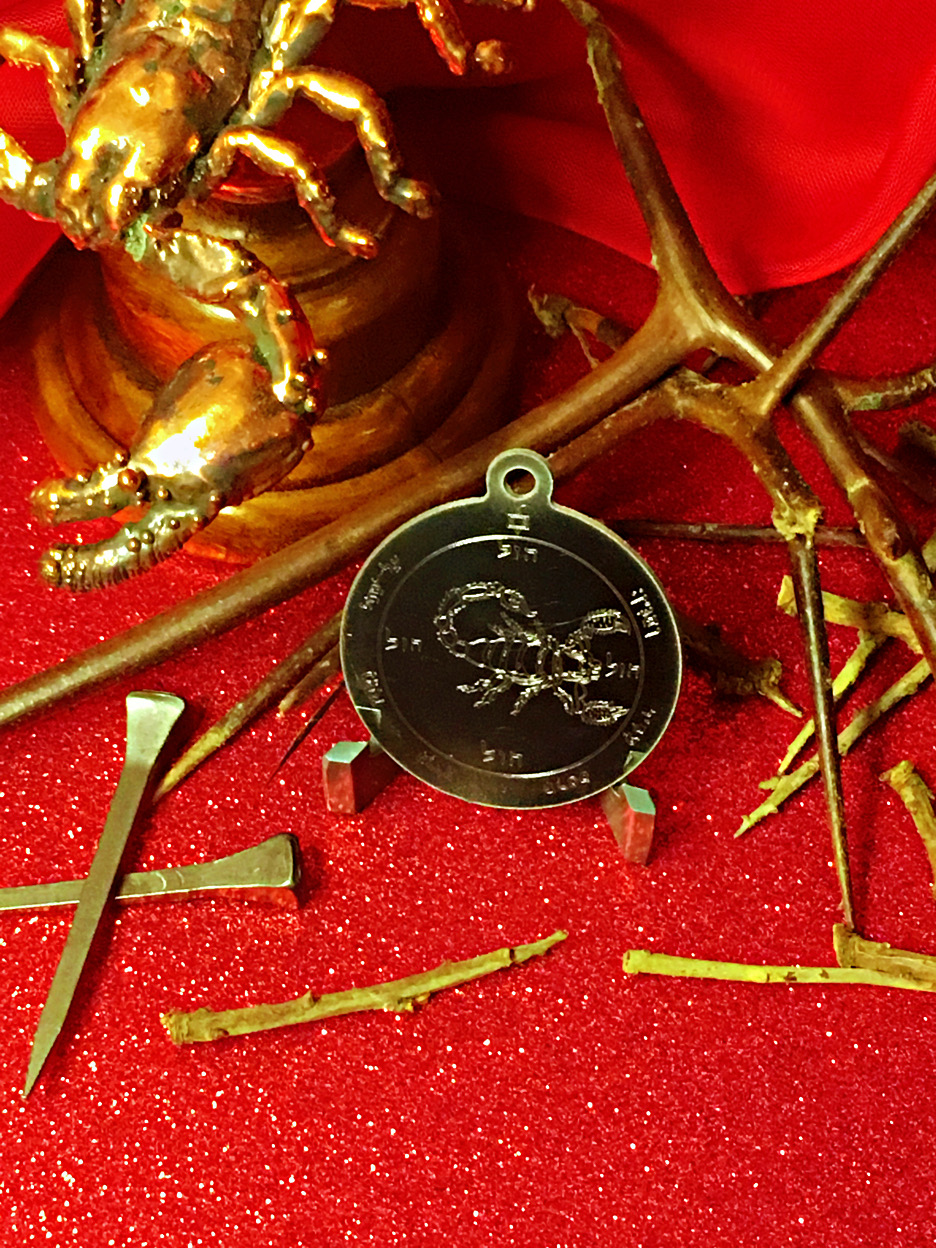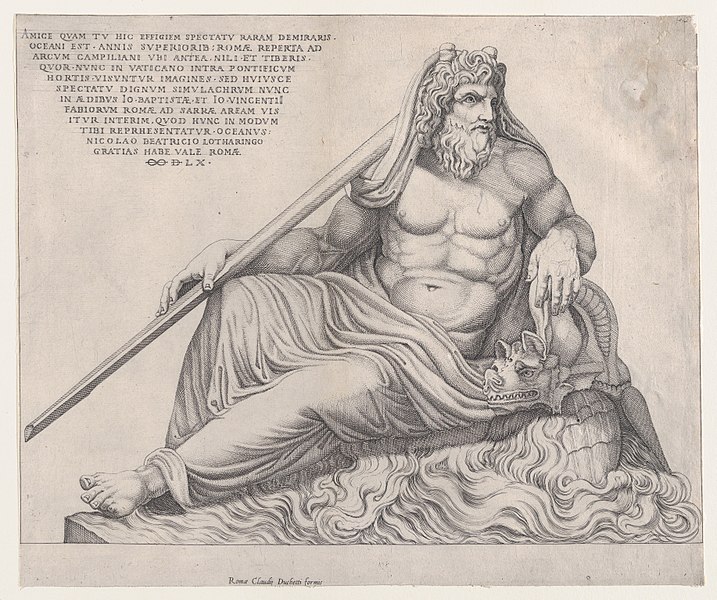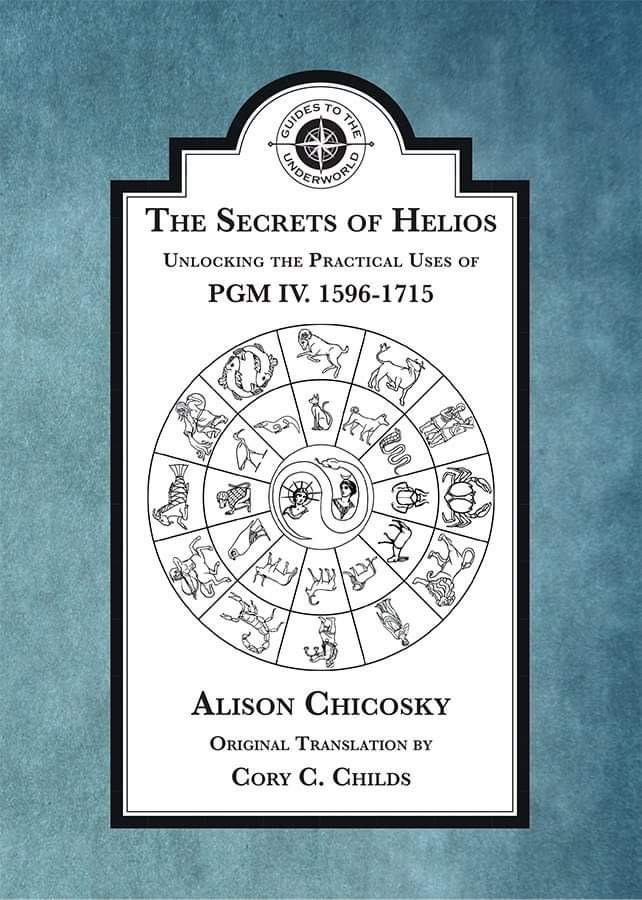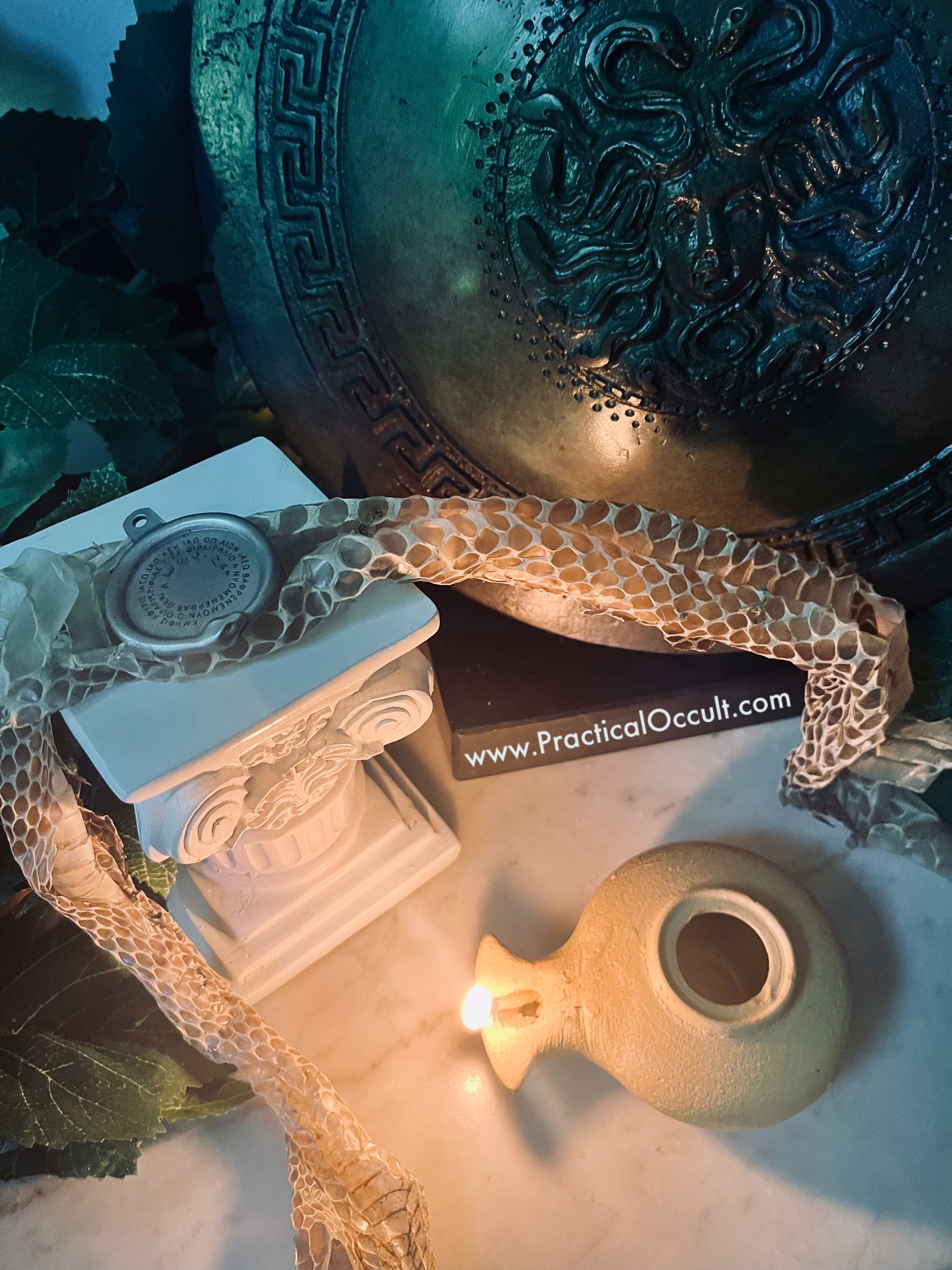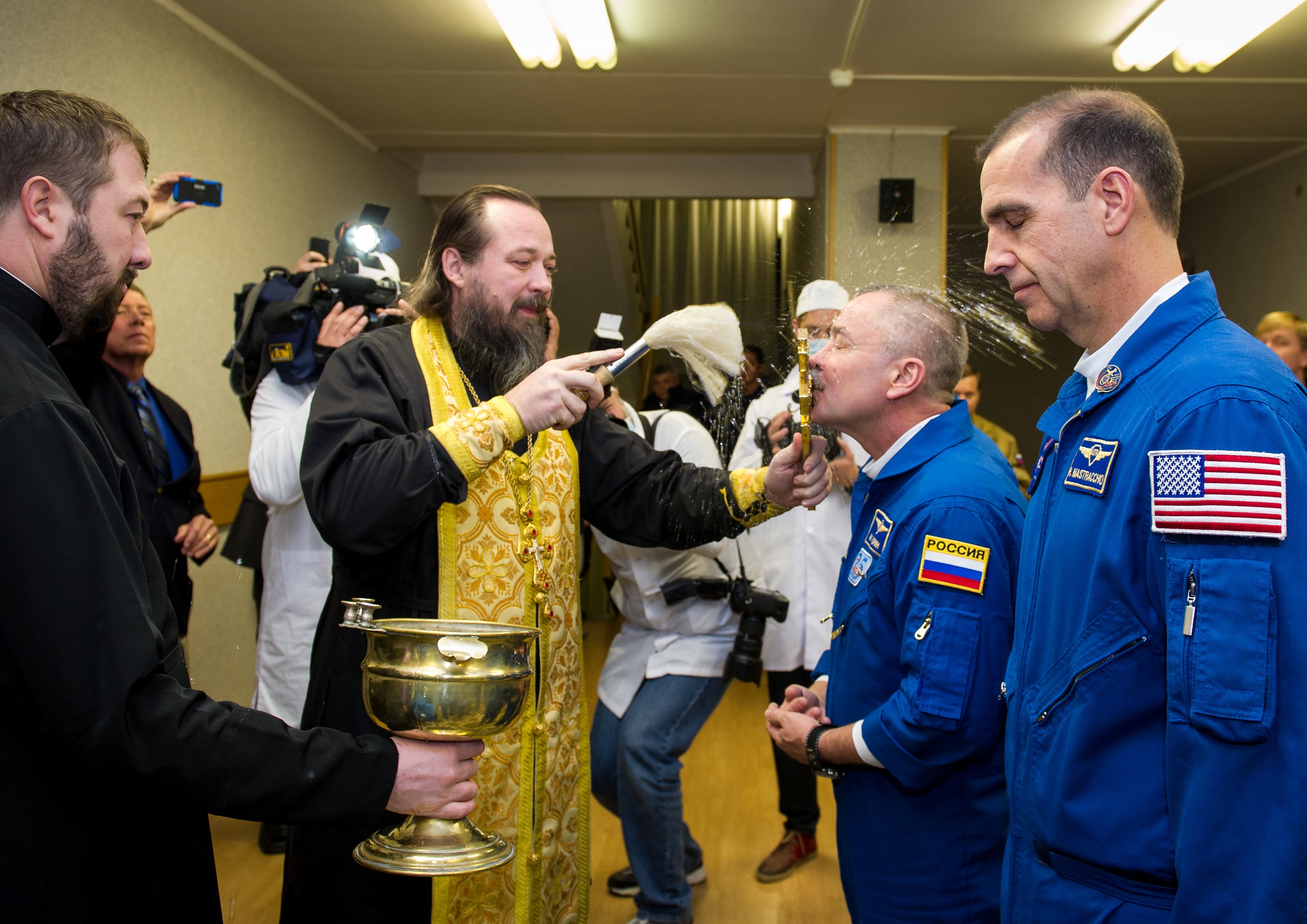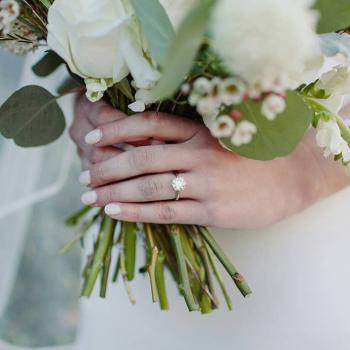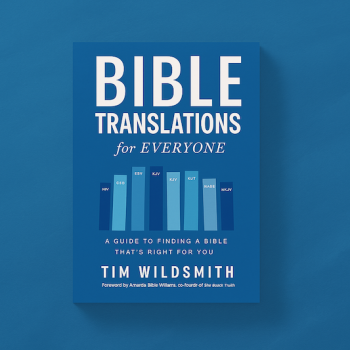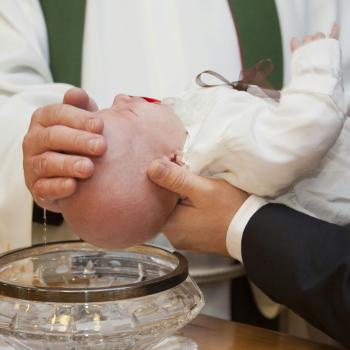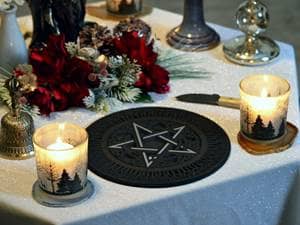
“Religion Behind the Scenes” spotlights the less discussed, but no less crucial, tasks that keep religious communities running, and the people who make it all happen.
How you ever worn green on St. Patrick’s Day, knocked on wood, made the sign of the cross, owned a rabbit’s foot, or crossed your fingers? If you have, you’ve practiced “apotropaic magic.” While the term might sound spooky, demonic, or just plain weird, almost everyone has some tradition or superstition that is rooted in apotropaic magic—or efforts to ward off bad luck and malevolent spirits.
In this installment of “Religion Behind the Scenes,” we talk with Alison Chicosky, a brilliant scholar and practitioner of thaumaturgy—who focuses her work on results-based magic. As the founder of practicaloccult.com, Alison creates pentacles and other enchanted items—drawn from a broad background in the ancient arts, leveraging the systems of the past for practical modern use. In this delightful interview, Alison shared numerous unexpected insights, and you’ll almost certainly be surprised by the many ways in which you personally engage in this ancient form of magic.
Alison, thanks joining me for this conversation. Can you tell us a bit about yourself and what got you into magic and the occult?
Sure. Well, I’ve really always been interested in this sort of thing. I grew up Protestant, and later became Pagan. I was maybe a bit jaded with Christianity and what I was seeing around me. Though, now that I've studied more about ancient Christianity (when it was first forming), I feel a bit differently about it. There’s a vast gulf between American popular Christianity and what Christianity was when it first started off. So, I honestly think that my Pagan religious studies have maybe warmed me up more to Christianity.
Anyway, I always knew that there was more out there, like the unseen world. I had experiences seeing spirits when I was younger. You know, just things like that. So, I knew things were out there. And I personally felt plagued by spirits when I was younger.
Gmihail / Wikimedia.org
Plagued by “evil” spirits?
I don't necessarily know that they were “evil.” It’s just that encountering a spirit can be a scary thing to experience. There are adults who say, “These things don't exist.” And my response is, “Oh, no! I’ve seen them!”
But now, I'm happy to say that the things that I make help people that are having experiences like I had. I have helped people who, for example, have said to me, “I did some stuff to make myself more psychic”—because there are exercises you can do to accomplish that—“And now I am seeing all of these things that I don’t want to, and I want them to stay away from me.” So, I make things that can help with that.
I know some practitioners of Paganism, and they all call themselves “witches.” I noticed on your bio that you referred to yourself as a “magician” instead of a “witch.” Can you tell us about the difference between those terms?
These terms are all very loose. Just as the term “magic” itself has become very broad, so also the term “apotropaic magic” covers a huge range of things, from the very basic to the very complicated. And a lot of people that engage in things that fall under the traditional definition of apotropaic magic wouldn't consider that what they are doing as “magic.” But it is! For example, making the sign of the cross, you know, or reciting a prayer when you think that something's not going right. Throwing salt over your shoulder, making a hand gesture, reciting a Bible verse. These are all apotropaic magic. But if you told your older Christian grandmother that she was performing apotropaic magic—by making the sign of the cross—she would be like, “Get out of here! I don’t want to hear that!”
President.gov.ua / Wikimedia.org
So, the terms can be slippery and often misunderstood but, to your question, I do answer to the titles, “magician” and “witch,” “sorceress,” and particularly “ritual specialist.” But, like I said, these are all very loose terms that people will use with a variety of meanings.
Because most of our readers are not practitioners of the occult, can you give us a quick definition of how that term might be different from Satanism or demonology—because I’m pretty sure that a lot of people lump those together.
The occult just has reference to “the hidden,” and it has to do with the “unseen world”—which is really part of the whole world, right? There’s the “seen” and the “unseen” part of our existence or world. So, the word “occult” can encompass so much, including the position of the sun, the moon phases, the stars, and the planets, and how all of these things relate to us in the terrestrial. We know scientifically, for example, that the earth is very affected by the pull of the moon. And there are unseen things that happen as a result of that pull. It has been said that philosophers “theorize” about these sorts of things, while magicians “study” them and “experiment” with them.
So, the occult is really built on thousands of years of humans noticing these things, and people really believe in things like this—scientifically and religiously.
Provided by Alison Chicosky
Tell us a bit more about your business, practicaloccult.com. How long have you been doing this and how did you get into this work?
Well, I started practicaloccult.com in 2019—as my full-time occupation. Before that, I had a career in “Tech & Ops” in the banking industry. And I honestly thought that I was going to work in that field until I retired. But then there was a wave of layoffs—and my whole team was let go. And I was like, “Wow! I guess I’m gonna look for a new job!” The need to find a new career was a major surprise to me but, you know, things happen. And, as I was sending off resumes to different companies that had tech jobs, I kept thinking to myself, “I don’t want to put on a suit. I don't want to take a train into another city. I don't want to do this again.” You know what I mean? Well, I had already been making magic items for quite some time, for personal use and for other people. I made them for me, but I made them for people that I cared for as well—people that I thought were in need. I was in that “What do you want to do with your life?” phase when people started asking me if they could buy the things I make. And I thought, “Wow! Maybe this is a viable business.” There’s this book—Ikigai: The Japanese Secret to a Long and Happy Life. And it talks about (1) what you love, (2) what you're good at, (3) what the world needs, and (4) what you can be paid for—and the intersection of those things. And what I do is that. I love this! I’m good at it. People need it. And people pay me to do it.
Okay, so the term “Apotropaic” comes from a Greek word and means literally to “turn away from” or “avert evil.” Is that the same way you define “apotropaic magic”? Or is your use of the term more nuanced than that?
Sure. So, the term means that this kind of magic “turns away” or “wards off” ill luck or malevolent forces. But the understanding of those “malevolent forces” in ancient Greece was a lot broader than today, and had a lot more to do with the unseen rather than with the “satanic” (as some would think of it today). So, for example, people often believed that evil spirits caused health issues. And some of them are believed to be related to the astrological—like the Decan spirits of the Testament of Solomon. So, as an example, we have the first spirit, Ruax, who causes headaches, and is dispatched by saying, “Michael, imprison Ruax!” (That’s a reference to the Archangel Michael.) Reciting that request for command was believed to turn away the evil of the spirit who causes headaches. So, anciently astrologers and priests made amulets as a form of medicine.
That reminds me of the Roman Catholic Saint of “lost things”—Saint Anthony. There’s a prayer that you recite if something has been lost: “Tony, Tony, look around. Something’s lost and must be found.”
Exactly! They wouldn’t see that as a “magical incantation,” but the idea of Christian magic is so huge and ingrained. You have these old Coptic charms and Christian prayers that can call on Jesus to turn away evil, and things like that. So, when people think that this is just something that Satanists would do, it’s not. It is something that I would say pretty much every culture and religion has, to one degree or another. It could be anything from a color you wear or don't wear, or throwing salt over your shoulder. (Most people are familiar with that. It was originally intended to cast out evil spirits.)
What are some things that would traditionally be used as talismans, amulets, etc.? I realize, of course, even horseshoes technically fall into this category? But what kinds of things could be classified as magic spirituality or the occult?
Like I said, it's a wide spectrum. And it can include things like planting our using certain herbs (like mugwort), throwing salt over your shoulder, making a hand gesture like crossing your fingers or the Mano Fico. Making the sign of the cross falls into this category, as does using holy water. There are certain Bible verses one says, like Psalm 37:15—as a means of turning away the evil of your enemies. (If someone is attacking you, recite that psalm.) A lot of these things are culturally ingrained, contingent upon where you grew up.
But, on the other end of the spectrum, you’ve got amulets, talismans, and pentacles, that are made by specialists. These often include some kind of specialized timing in their creation—like an astrological election of planetary hour, or moon phases—which are common factors. And amulets or talismans may have to be made of special materials. Possibly a specific metal or gem. For example, iron is very commonly associated with keeping away evil spirits or the Fae. So, you'll find a lot of people putting things like iron road spikes outside the corners of their house to keep spirits away. Things like that.
You’re not typically going to see a Christian using a Jupiter talisman or a pentacle. So which kinds of apotropaic magic would be unique specifically to the occult, as opposed to religion in general?
Well, I would actually go back to what we just discussed and point out that quite a lot of Christians do utilize traditional apotropaic magic items, including things like Saint metals—which are really equivalent in use to a talisman or pentacle. A person might use a St. Christopher medal in their car to avoid an automobile accident. There are all kinds of patron saints that are appealed to for various things, and saint medals associated with many of them; medals which are used in the same way talismans or amulets are in occult practice. So, there is an incredible overlap between various religious practices and the occult.
Talk to me about the process of making a talisman, an amulet, or similar items. Can you walk me through the process of how one of those are made? Can just anyone make them? Or do they have to be authorized or activated in some way—blessed or endowed with power by the creator or user?
Sure. So, like I said, it's a spectrum. And, you know, it can be as easy as “I'm going to take this item or bag of herbs or something, and just put it in my pocket or around my neck.” So, you've got things that are very, very easy to do. But then you have ritual specialists, like me. And we will do a series of things to make these special items. And let me also just say that this is a huge art, right? So, I can only speak about what I do. It's not like in some religions, where they might say “This is how you must make such-and-such”—and everybody who makes one knows to follow that established pattern. That’s not how it works for this sort of thing, in the occult.
But some of the standard processes include, as mentioned, making sure you're making these at the right time of the day or month. So that might mean that you need to take into account the astrology, the moon phases, the hour of the day, or things like that, before you start making a talisman or amulet. It’s picking the right time for making it, but also picking the right material for it. So, I make a lot of items with planetary associations, and planets are associated with specific metals. For example, the sun is associated with gold. So, my solar things are gold plated.
Does it require a ritual specialist to create a traditional occult talisman? Or could anybody make one?
Yeah, that's a spectrum too. I personally do believe that there is magical value in just sometimes drawing these symbols yourself. Some people might draw a pentacle on the side of a candle and then burn the candle. That may not have the same “punch” as having a ritual specialist make one for you. It may not have all of the bells and whistles if you make it yourself, but I think it still has power and will have some impact if it is homemade.
Provided by Alison Chicosky
You've got the timing in making the item, which is important, but you've also got personal preparation—which has influence as well. So, some preparatory things might include fasting, or ritual baths, so that the person doing the ritual is in the right space for that. It might include doing special fumigations, so certain incense can bring out the virtues of that planet or relate to the spirits of that planet. Going back to my example of the sun; I would burn frankincense on a little altar setup that I have. And I would call the spirits related to what I'm making and ask them to bless the item that I'm making.
You can find more information on how someone who is not a specialist can use these pentacles in the Sorcery of Pentacles class available through Practical Occult.
So, the spirits bless it rather than you blessing it, as a witch or priestess?
The spirits, bless it. I call the spirits and I say, “Please lend your power to this item to make it effective.” In that way, I'm acting as the priestess to channel the power of the spirits by contacting them and getting their buy-in. Because really, at that point, it's working off of my relationship with the spirits and my networking to get that to work.
Let's say I had bought a talisman, amulet, or a pentacle from you. How might I employ that or utilize that? What might I hope to accomplish by utilizing it? Talk to me a little about that.
Sure. I make a lot of types of amulets and talismans and pentacles. Not just the apotropaic ones designed to ward off evil. I also make things that bring in the good, prosperity, or giving you a charisma bonus, so that people will be more attracted to you, you know? It’s not going to guarantee a relationship, but it will make somebody who sees you or meets you think, “Oh, hey, who's that?” Or “I would like to know that person better.” You know?
Provided by Alison Chicosky
Like a “Love Potion”?
Yes and no. I do make love items. But what they offer is more like a charisma bonus than something coercive of another person or even some kind of guarantee of a new love. They’re really not designed to do that.
You asked about how these are used. Many of the items I make are simply worn, like a necklace, or you might attach them to the strap of your purse that you always have on you when you leave the house. And I also make some items that are placed in the house to protect it. I make a lot of Solomonic pentacles. I know some people, when they hear the term “pentacle,” are going to think of the five-pointed star, but the word “pentacle” doesn’t come from the Greek “penta” through Medieval Latin. My friend, Adley Nichols—from adleysmagic.com—explains this better than I do. He says that, in the French, you have the 14th century word “pentacle,” which comes from the prefix “pend,” meaning “to hang,” and “col,” meaning “from the neck.” So, the word “pentacle” refers to various kinds of magical or apotropaic charms, necklaces, or similar devices. I know a lot of readers, when they hear “pentacle,” think of the five-pointed star, or “pentagram,” that you see a lot of Neo-Pagans wearing. But that’s not what I mean.
I know I already kind of asked about this but talk to me a little bit more about what kinds of powers these items have, and the source of those powers.
Sure. So, the source, I believe, is the spirits, right? All these items work because spirits are either actively involved (on an ongoing basis) in making them work or because the spirits imparted some power to the object when it was being created.
Provided by Alison Chicosky
What are “the spirits”?
It depends on the item. So, with the Solomonic pentacles, when I make them, I'm calling on archangels, and the series of spirits—but, it's not necessarily angels that carry out the results. For example, there is the 5th Pentacle of Mars, which is a protective item that wards off demons, but it also wards off a whole host of malefica, which is evil magic intended to do harm. So, the 5th Pentacle of Mars is made by conjuring the archangel of Mars, and by asking a blessing on the pentacle.
This is a bit of a tangent, but I’ve had customers use the 5th Pentacle of Mars and then tell me that they got an “unexpected ally” to protect them through using it—but that “ally” was not the archangel of Mars. I was like, “Wow, is this a case where it's an angel in another guise?” Because sometimes people talk about how one culture may see a specific spirit as an angel, but another culture might see it as a Pagan god or whatever. So, I called up the spirit and asked, and it told me, it’s basically putting out the equivalent of an alarm to protect you, and whoever is available to handle that will. So, there's all sorts of spirits that do things like this all the time. And they’ll just get whoever's close by to intervene on their behalf.
So, are the “spirits” you’re interacting with the same “spirits” or angels that a Christian or Muslim might say they interact with or receive intervention from? Or are they spirits only associated with the occult?
You know, it's complicated. Some folks say that the Pagan gods of yesteryear have been demonized and given other names. I'm not going to weigh in on that because, at the end of the day, unless I talk to a specific spirit, and it tells me something, I can’t verify the identity.
So, do you usually just petition the “spirits” in general? Or are you more specific than that? I guess what I'm asking is, how do you know which spirits to call on? And do you need to understand details about that spirit to petition it, or just (in essence) know that this is the archangel of Mars, and nothing beyond that really matters?
Yeah, as a ritual specialist, I absolutely know all the names of the spirits I'm calling on. I usually know their symbols as well. (They often have symbols or specific things that you say to call each of them.)
I wrote a booklet which is coming out in November 2022, and it's about how to consecrate an amulet based on a spell from ancient Egypt (a spell from late antiquity). The booklet explains the process of consecration, how to petition the spirits, and it gives the context of how all of this works. The book is titled Secrets of Helios, and the publisher is Hadean Press. It will answer a lot of these kinds of questions.
Provided by Alison Chicosky
Is there a spiritual or sacred side to what you do? And how have you been influenced—spiritually or otherwise—by making items used for apotropaic and other kinds of magic?
Yeah, it's interesting, and probably hard to explain. I feel like I'm bringing the magic into my life over and over again, each time I do it for other people and as I engage in it to make these items. This week, for example, I consecrated a bunch of solar items, and I just felt so great doing it, you know? The spell, from late antiquity, is one that calls on the sun in its multiple forms—as it moves through the constellations in the sky with its apparent motion during the day. And you're asking the sun to grant all of these different blessings to an object. And when I do magic like this, I just personally feel blessed. It's very much akin to that feeling where, on a cold day, you go out and the sun is shining on your face (warming it), and you kind of turn your face up, and it just feels great. It's kind of like that.
Are you a different person spiritually, or a more spiritual human being, because of what you do?
Yeah, I think so. I believe that I have become more compassionate as a result of doing this. And I really respect and care for the spirits that I work with. I just don't want them to be disappointed. I know they're there. They're there and they're watching me conduct myself, and while I don't think they're going to cut me off or anything, I would like to act respectable, so that I am respected by them.
Do you have an interesting or even humorous experience that has stuck with you—either in making amulets, participating in apotropaic magic, or in working with customers? If so, can you share one with us?
Well, there are a lot of reviews on my website—some of which are very detailed. I prefer to let customers speak for themselves. So, I won’t share anything about that, but people can go read what’s being said by my customers.
Provided by Alison Chicosky
But I do have a funny story about magic that I've done. There's a solar pentacle that I make (the “5th of the Sun”), and the description of this particular pentacle says that it “transports you across great distances.” I thought, “Well, what does this mean?” Does it mean that spirits are going to literally come and grab me and fly me to another city? Like, I don't know! So, I did a little ritual with my scryer, who's very, very psychic, and can clearly hear the words of spirits. So, I did the ritual and called the spirit and said, “Hey, what does it mean when you say that it can transport you across great distances?” I asked, “Does it mean astral projection?” “Does it mean your spirit is traveling?” “Does it mean that you’re bodily transporting them?” And the spirit said, “Where your spirit goes, your body goes.” And I was like, “All right, well show me.” And the next thing I know, my scryer just slumped out of his chair and fell on the floor—like he was dead! The spirit had just yanked him right out of his body. And I was like, “Oh, my God” Like, I didn't know if he hit his head. I was like, “I just killed my scryer!” Thankfully, he was fine, and he recovered within moments. We laugh about it now, but when it happened, I really thought I had killed him!
What would you say are the biggest challenges you run up against in the work that you do?
When it comes to public occultism, there are a wide variety of strong opinions. You can upset someone by just being yourself.
What’s the best part of what you do, and the best part of apotropaic magic?
Honestly, the best part of what I do is helping people. Every time I get a review, it's like a little treasure to me, you know? I'll be going about my day and maybe eating lunch or something, and then I'll get the notification, “You've got another five-star review.” I'll be like, “Ooh, let me see what it says.” It’s very exciting.
And also, regarding apotropaic magic—or magic that wards off evil—having those experiences with spirits when I was younger, where I felt like I was plagued by things and couldn't get them to go away, I can now help people that are in that exact situation. And that means a lot to me.
What else do you think people should know about apotropaic magic or what you do?
I'd like people to know that, while this might look very superstitious to them, people have been making and using apotropaic magic items consistently for thousands of years. And even Christians have done that because they believe that these things work. And also, ritual specialists (like me) have been around for thousands of years. This is why Christians have priests. People who are not directly associated with the occult don’t know that they practice magic, but they are when they do things like making the sign of the cross, using holy water, getting baptized, and those kinds of things. So, you know, these things genuinely haven't changed that much over the thousands of years that they have been practiced in various religions.
I grew up in the Greek Orthodox tradition, and we had what was known as a “phylakton”—which was a blessed object worn for protection against evil. Sometimes it was in the form of a little square piece of the Bishop’s savanon, or sometimes a bit of cloth from the “old country” with some soil from Greece sewn into it. And these worked very much like amulets.
Yeah. And that's one of the reasons why I wanted to really push that every culture has this, especially Christianity. It might look very superstitious to some, but people have been making and using items for apotropaic magic for thousands of years. And it’s one of those things where it's just everywhere, to the point that we don't even realize it.
Interview conducted, transcribed, edited, and condensed by Alonzo L. Gaskill.
10/21/2022 8:09:21 PM
